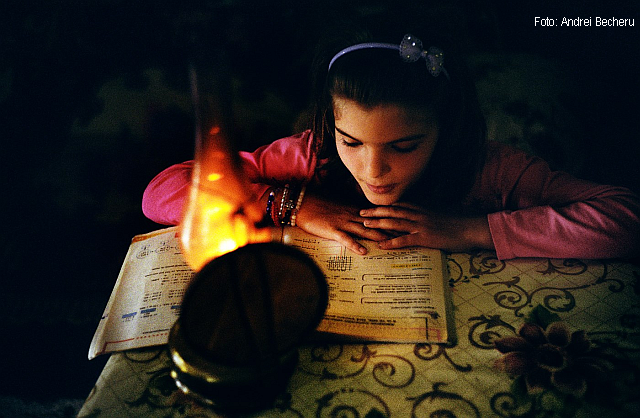A different type of charity
Whether through donations or volunteer work, Romanians are becoming more and more involved in charity campaigns.
Warning: Trying to access array offset on null in /home/web/rri.ro/public/wp-content/themes/rri/template-parts/content.php on line 53

Warning: Trying to access array offset on null in /home/web/rri.ro/public/wp-content/themes/rri/template-parts/content.php on line 98
Christine Leșcu,
08.07.2015, 13:13
Many young people in Romania
who want things to improve and who cannot wait for the state to get involved
have started to create their own charities. One such example is the Beard
Brothers of Cluj, a group of bearded and tattooed bikers who wanted to turn
their atypical image into a brand name. Cornel Hoza, a member of the group,
told us what that has achieved:
We set up the group in
November 2013. We have grand plans, we want to be involved in society and help
as many people as possible. So far we’ve organised seven large scale charity
campaigns, and a lot of other events and satellite campaigns. We get involved
in any kind of action, we don’t have a pattern. If we feel that we have to get
involved in something, we do it. So far we put a few pennies aside for a kid
with cancer and got a hold of a minibus for a special needs kindergarten.
The Beard Brothers have run
more campaigns, such as cleaning up party places and collecting waste, as well
as gathering donations for a few needy families. We asked Cornel Hoza if their
non-conformity helped them:
It definitely counted. When
you see a huge guy with a beard and tattoos selling cookies in the central park
in Cluj… that has an impact. In addition, we had campaigns for which we shaved
our heads in the centre of the town to raise funds. We are trying to do all
this in a different way. It all started with a group of nine friends, but as we
developed we drew in all kinds of people, from all walks of life. However, we
share a wish to help others. We don’t have any personal benefits, this is
exclusively voluntary work.
The beards, the tattoos, the
bikes, but mostly their empathy, brought in the largest number of members into
the Beard Brothers group. The association now has 29 male members and 30 female
in the group’s so-called sisterhood division. The passion for travelling also
worked in favour of charitable causes, especially combined with their
non-conformity. Iulian Angheluta, one of the members, told us about the
beginnings of the organisation, in 2012:
We started cleaning up
beaches and gathering clothing and shoes for the needy. Our biggest achievement
was the trip we took to Mongolia, with an old school Dacia car, in the summer
of 2012. This was a humanitarian rally. The challenge was to take the car all
the way over there, and then donate it to a Mongolian NGO, which auctioned it out
alongside all the other cars in the rally. The project was meant to bring
computers to Mongolia, where the population is mostly nomadic. The idea was to
supply people with tablets or other digital platforms to provide education in
spite of their nomadic lifestyle.
When they came back from
Mongolia, where they donated their car, Iulian Angheluta and the other
volunteers started focusing on bringing electricity to villages in Romania that
have none. Having no electric power affects people in ways you may not have
thought of:
According to data from the
2011 census, Romania has 248,000 homes without electricity. This is the
official figure. Of these homes, maybe 100,000 are not inhabited, but what
matters is the number of people living there. These are impoverished people,
one home without electricity can house as many as five to ten people.
The campaign to bring
electricity to villages started in Ursici, a village in Hunedoara county, and
continued in four other counties. Volunteers brought in solar panels bought
from donations. Slowly but surely, these isolated communities started feeling
the benefits of electric power generated by solar panels. Here is Iulian
Angheluta with details:
This is in line with our
organisation’s environmental purpose. Costs are lowers, we haven’t cut down a
single tree and have not drawn a single wire from the grid. The sun is free of
charge. The equipment entails some costs, but that is ok. Until this spring, we
have brought electricity to four schools the Ministry of Education didn’t even
know they had no electricity. We continued our field research to see how many
people are deprived of electricity. We had sponsors to persuade, but the
hardest thing is to convince the public authorities. The state has made
commitments towards the European Union, and they also have a moral commitment
towards the citizens. In my estimation, tens of thousands of people live in the
dark, using candles and gas lamps. Thousands of families are cut off from
information for lack of power. There are health issues too, given that kids do
their homework by candlelight, and their sight is affected.
The problems are compounded by
poverty, because usually families who live in homes without power could not
afford a monthly electricity bill to begin with. The good news is that Iulian
Angheluta and his peers do not expect anything in return for their efforts, all
it takes is their continued commitment.






























